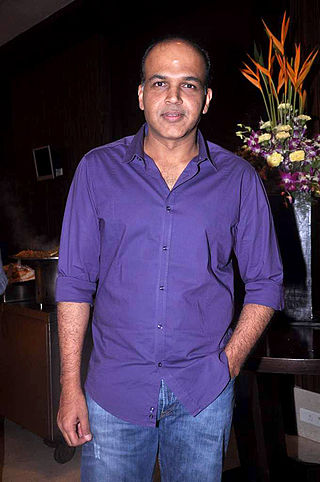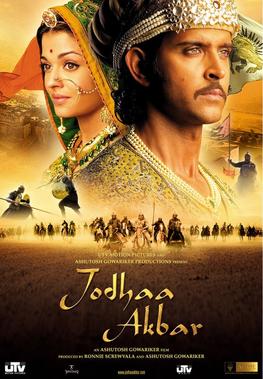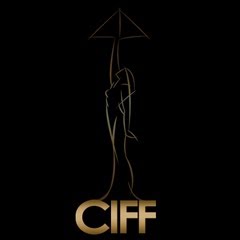Related Research Articles

Tatarstan, officially the Republic of Tatarstan, sometimes also called Tataria, is a republic of Russia located in Eastern Europe. It is a part of the Volga Federal District; and its capital and largest city is Kazan, an important cultural centre in Russia. The region's main source of wealth is oil with a strong petrochemical industry.

Islam is a major religious minority in the Russian Federation, which has the largest Muslim population in Europe. According to the US Department of State in 2017, Muslims in Russia numbered 14 million or roughly 10% of the total population. One of the Grand Muftis of Russia, sheikh Rawil Gaynetdin, estimated the Muslim population of Russia at 25 million in 2018.

Ashutosh Gowariker is an Indian film director, actor, screenwriter and producer who works in Indian Hindi cinema. He is known for directing films "set on a huge canvas while boasting of an opulent treatment".

Rustam Mammad Ibrahim oghlu Ibrahimbeyov was a Soviet and Azerbaijani screenwriter, playwright and producer, well known beyond his home Azerbaijan and the former Soviet Union. He was the chair of the Cinematographers' Union of Azerbaijan and director of the Ibrus Theatre.

Jodhaa Akbar is a 2008 Indian Hindi-language epic historical romantic drama musical fiction film directed by Ashutosh Gowariker. It stars Hrithik Roshan and Aishwarya Rai Bachchan in the titular roles. Set in the 16th century, the film shows the fictional life and love between the Muslim Emperor Akbar of the Mughal Empire and a Hindu Princess Jodhaa Bai of Amber, and their political marriage. A. R. Rahman composed the musical score which proved to be critically and commercially successful. The film marks the second collaboration between Roshan and Rai Bachchan after Dhoom 2 (2006).

The Volga Tatars or simply Tatars are a Turkic ethnic group native to the Volga-Ural region of western Russia. They are subdivided into various subgroups. Volga Tatars are the second-largest ethnic group in Russia after ethnic Russians. Most of them live in the republics of Tatarstan and Bashkortostan. Their native language is Tatar, a language of the Turkic language family. The predominant religion is Sunni Islam, followed by Orthodox Christianity.

The Cairo International Film Festival is an annual internationally accredited film festival held in Cairo Opera House. It was established in 1976 and has taken place every year since its inception, except for 2011 and 2013, when it was cancelled due to budget limitations and political instability. It is the only international competitive feature film festival recognized by the FIAPF in the Arab world and Africa, as well as the oldest in this category.

The Peace Tree is a 2005 family film written and directed by Canadian filmmaker Mitra Sen.
Malek Shafi’i is a film director, producer, festival organizer, and human rights activist from Afghanistan.

Islam in Tatarstan existed prior to the tenth century, but it began major growth in 922, when Bulgar ruler Almış converted to Islam. This was followed by an increase in missionary activity in Volga Bulgaria. Islam remained the dominant religion through the Mongol invasion and subsequent Khanate of Kazan. In 1552, the region was finally conquered by Russia, bringing the Volga Tatars and Bashkirs on the Middle Volga into the tsardom. Under Russian rule, Islam was suppressed for many years, first during the Tsardom and Empire and later during the Soviet era. Today, Islam is a major faith in Tatarstan, adhered to by 47.8–55 percent of the estimated 3.8 million population, making it one of the two dominant religions in the region, the other being Orthodox Christianity.
Listapad, also known as Minsk International Film Festival (MIFF) or Minsk International Film Festival Listapad, is an annual film festival which takes place in November in Minsk, Belarus. It is the largest such festival in Belarus.
Esmael Barari ;, is an Iranian filmmaker, film director, screenwriter, film editor and film producer. He is director of World Iranian Film Center, a member of The Union of Iranian Cinema Producers and a member of international jury of Mostra Valencia Film Festival.

Dinara Rafikovna Sadretdinova is a Russian TV presenter. She was born in Moscow.
KAZANSUMMIT is one of the leading international economic events of the Russian Federation and the Organization of Islamic Cooperation (OIC). From the first day of its existence, the Summit has been held under the patronage of the President of the Republic of Tatarstan, Rustam Minnikhanov. Since 2009, KazanSummit is held annually and strongly supported by the Federation Council of the Federal Assembly of the Russian Federation and the Government of the Republic of Tatarstan. Top international investment conference remains the main and unique platform for cooperation between the Russian Federation and the OIC member states.

Kashmiri cinema is the Kashmiri language-based film industry in the Kashmir Valley of the India,- administered union territory of Jammu and Kashmir. The first Kashmiri feature film, Mainz Raat, was released in 1964. In 2023, Welcome to Kashmir, directed by Tariq Bhat, became the first Kashmiri-produced Bollywood film to release in Kashmiri cinemas.
"Kinoshock" Open Film Festival of CIS and Baltic countries, also spelt Kinoshok, is a film festival staged in the Black Sea resort of Anapa, Russia, each September. "CIS" refers to the Commonwealth of Independent States, comprising nine member states.

Mehdi Imani Shahmiri born 3 April 1988 is an Iranian documentary director, producer and screenwriter,he is known for directing Parizad and Born in Captivity.
No Prior Appointment is a 2022 Iranian drama film directed by Behrouz Shoaybi. The film stars Pegah Ahangarani, Mostafa Zamani and Elham Korda in the pivotal roles. The film was produced by Mahmoud Babaei under his production banner Farabi Cinema Foundation.
References
- 1 2 3 "Tatarstan Muslim film festival supported widely". The Power of Culture. Retrieved 17 March 2023.
- 1 2 3 "Kazan International Festival of Muslim Cinema". AnydayGuide. Retrieved 17 March 2023.
- 1 2 3 4 5 6 "International Festival Of Muslim Cinema". Festival Focus. 5 November 2007. Archived from the original on 6 September 2009. Retrieved 17 March 2023.
- 1 2 3 4 "Tatarstan: International Muslim Film Festival Kicks Off In Kazan". RadioFreeEurope/RadioLiberty. 6 September 2005. Retrieved 17 March 2023.
- 1 2 "Golden Minbar Film Festival due in Kazan". AZERTAC (Azerbaijan State News Agency). 17 August 2009. Retrieved 17 March 2023.
- ↑ Russkiy Mir Foundation Information Service (27 April 2011). "Dates Announced for Golden Minbar Film Festival in Kazan". Russkiy Mir Foundation.
- ↑ Bose, Ishani (15 February 2018). "Check out this unreleased poster of Aishwarya Rai Bachchan-Hrithik Roshan's Jodhaa Akbar as it completes a decade". India.com. Retrieved 17 March 2023.